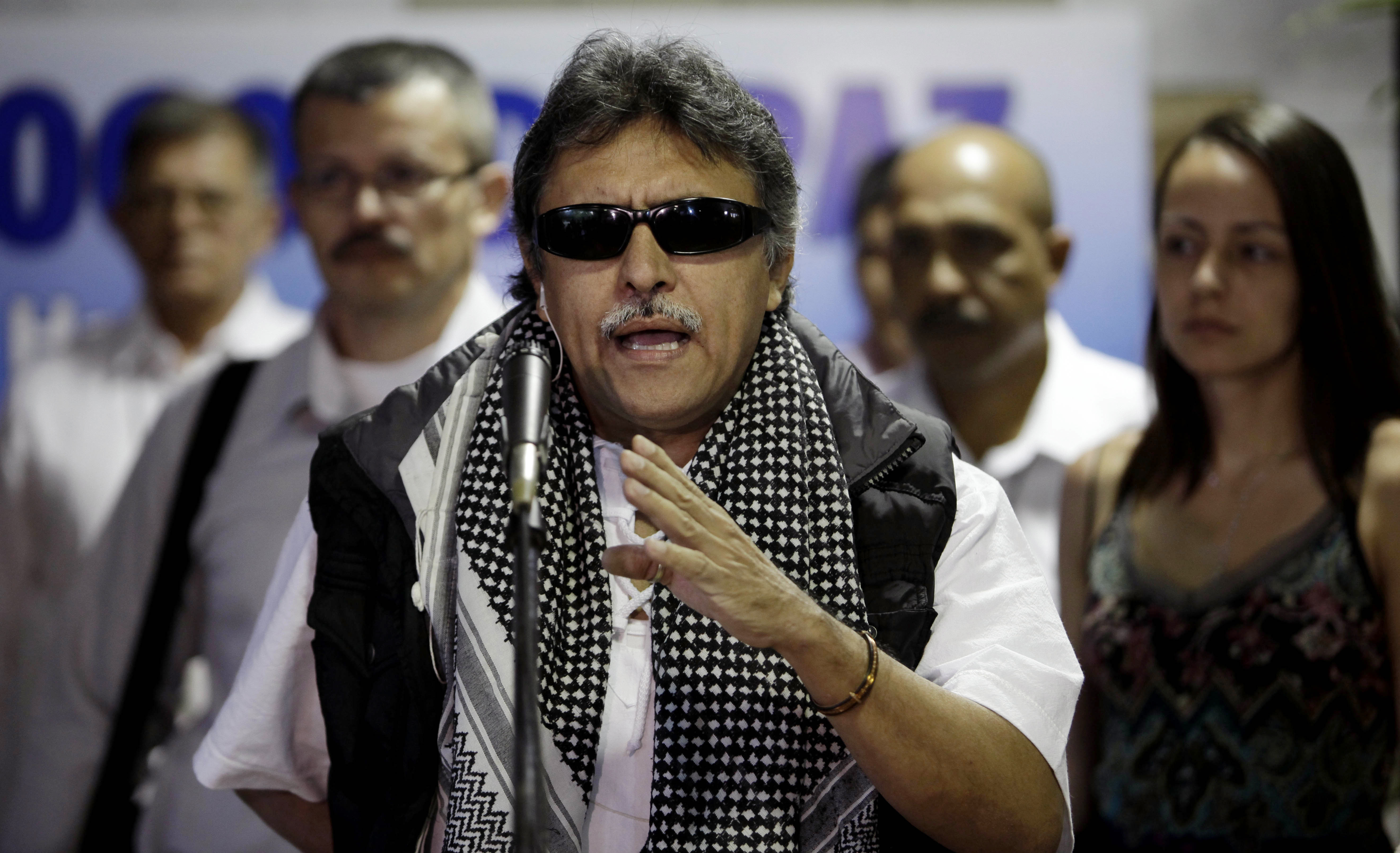
By JOSHUA GOODMAN
Associated Press
BOGOTA, Colombia (AP) — Colombian authorities arrested a former top rebel peace negotiator on a U.S. drug warrant Monday, delivering a major blow to the country’s already teetering attempts to put a half century of political violence behind it. Seuxis Hernandez, a blind rebel ideologue best known by his alias Jesus Santrich, was picked up at his residence in Bogota on charges that he conspired with three others to smuggle several tons of cocaine into the U.S. with a wholesale value of $15 million.
According to an Interpol notice, Santrich met with cocaine buyers at his residence on Nov. 2, 2017, a day after one of his co-conspirators delivered a 5-kilogram sample of the narcotic to them at a hotel lobby in Bogota. During the meeting and subsequent negotiations, he and his co-conspirators allegedly discussed plans for a 10-ton drug shipment to the U.S., boasting they had access to cocaine laboratories and U.S.-registered planes to produce and move the drugs inside Colombia, the world’s largest producer of the illegal narcotic.
President Juan Manuel Santos confirmed the arrest in a nationally televised address, saying that his “hand won’t shake” in signing off on Santrich’s extradition in order to safeguard the peace agreement’s integrity. Under terms of the accord aimed at ending Latin America’s longest-running conflict, rebels who lay down their weapons and confess their war crimes to special peace tribunals are to be spared jail time and extradition. But they aren’t protected for crimes committed after the December 2016 signing.
“The construction of peace requires the absolute commitment and respect for the law and the accords,” Santos said. “This is what the Colombian people demand. In this aspect, there can’t be any room for tolerance or weakness.” Santrich’s former comrades in arms accused the government of trying to sabotage the peace process. “This is the worst moment that the peace process has gone through,” said the former rebel leader known as Ivan Marquez, who served as chief negotiator during the peace talks. “The government has to act to prevent judicial set-ups like these from spinning out of control and generating a great deal of mistrust
among all of the guerrillas.”
But Chief Prosecutor Nestor Martinez said a New York grand jury handed down an indictment after evaluating evidence, including videos and communications, that indicated Santrich and three other co- conspirators who were also arrested hatched a plan in the second half of 2017 to smuggle into the U.S. cocaine with a street value of $320 million. The FARC’s ties to Colombia’s flourishing drug underworld have always been a sore spot for the rebels.
The FARC long funded itself by leveling a “war tax” on cocaine moving through territory it dominated, and 50 members of its leadership structure — though not Santrich — were indicted in 2006 in the U.S. on charges of running the world’s largest drug cartel.
But the FARC always denied direct involvement in the business itself and rebel peace negotiators in 2013 denounced drug trafficking as a “scourge” that has “contaminated” the international financial system and generated a global health crisis. Santrich, 51, was one of the first rebels to bet on peace, traveling to Norway’s capital in 2012 to kick of negotiations with Colombia’s government and then participating in talks that continued the next four
years in Cuba, where he earned a reputation as being a hardliner. The son of two school teachers, Santrich joined a local youth communist group as a student and entered the guerrilla movement in his early 20s.
He gradually rose through the rebel ranks to eventually join the central high command. Since the signing of the peace accord, Santrich has lived in a two-story home in a working-class neighborhood of Bogota. Despite being blind, he said he spent much of his time painting, using tacks placed into a canvas to create an outline and guide his brush. His works hung on the walls of his living room, many of them depicting former guerrillas still being kept behind bars. “Those who were detained betrayed the values and principles of the peace accords,” Martinez said, but he offered assurances that the legal rights of other rebel fighters who remain true to democracy will be respected.



















